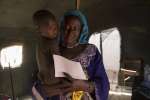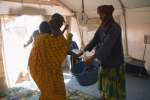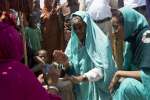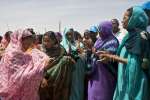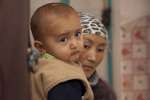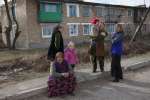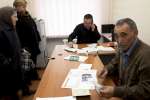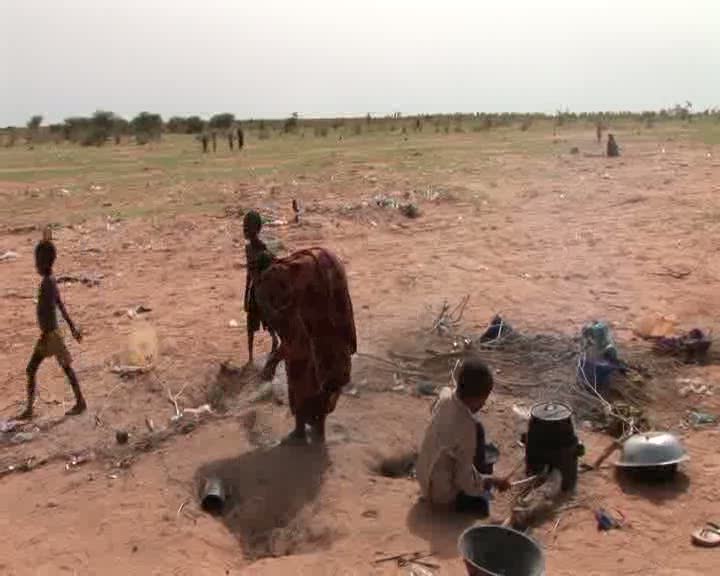Boost for the reintegration of Mauritanian returnees
News Stories, 26 November 2008

NOUAKCHOTT, Mauritania, November 26 (UNHCR) – Mauritanian refugees considering whether to return home with UNHCR help received positive news at the weekend when the Mauritanian authorities gave birth certificates to two returnee children, paving the way for them to receive national ID papers.
The documents were handed to the young boy and girl during an official ceremony on Sunday in the border town of Rosso. The development came just days after the number of Mauritanians repatriated from Senegal by the UN refugee agency since last January passed the 5,000 mark – government officials said they will all shortly be issued with national identity cards which guarantee full citizens' rights, including access to education and health care.
Under an agreement with Mauritania and Senegal, UNHCR launched an assisted voluntary repatriation programme in January, hoping to bring home some 24,000 registered refugees, most of whom fled their homeland in 1989 and found shelter in Senegal or Mali. But many refugees have been reluctant to return due to what they see as unacceptable delays in the issuance of ID papers.
Sunday's gesture was aimed at allaying the concerns of those remaining overseas and at convincing them that the government was keen and committed for them to return home. Government officials have said they plan to issue ID documentation to the rest of the 5,000 returnees soon, and to all future returnees.
Those born abroad, like the two infants in Rosso, will be given birth certificates, which should allow them to receive national IDs. "There is no way that the returnees are considered refugees in their own country," said a top official in Rosso, adding that Mauritania was committed to easing the reintegration of the returnees.
UNHCR, which recently resumed repatriation convoys from Senegal after a four-month rainy season, is happy with the development. "We have been strongly encouraging the authorities to resolve the delays related to the issuance of ID papers. We hope the pace of repatriation will now pick up," said Anne-Marie Deutschlander-Roggia, UNHCR's representative in Mauritania.
Many personal documents were discarded from state archives in 1989, when some 60,000 Mauritanians fled to Senegal and Mali after a long-standing border dispute between Mauritania and Senegal escalated into ethnic violence. Although most of the refugees want to return, many regard national identity papers as vital for long-term reintegration into society.
The first voluntary repatriation convoy from Senegal took back 103 Mauritanian refugees on January 29 this year, following last November's agreement between the neighbouring countries and UNHCR. Several thousand refugees went back on their own in the 1990s; many received ID cards and were able to participate in elections.
By Jan Bosteels in Nouakchott, Mauritania




